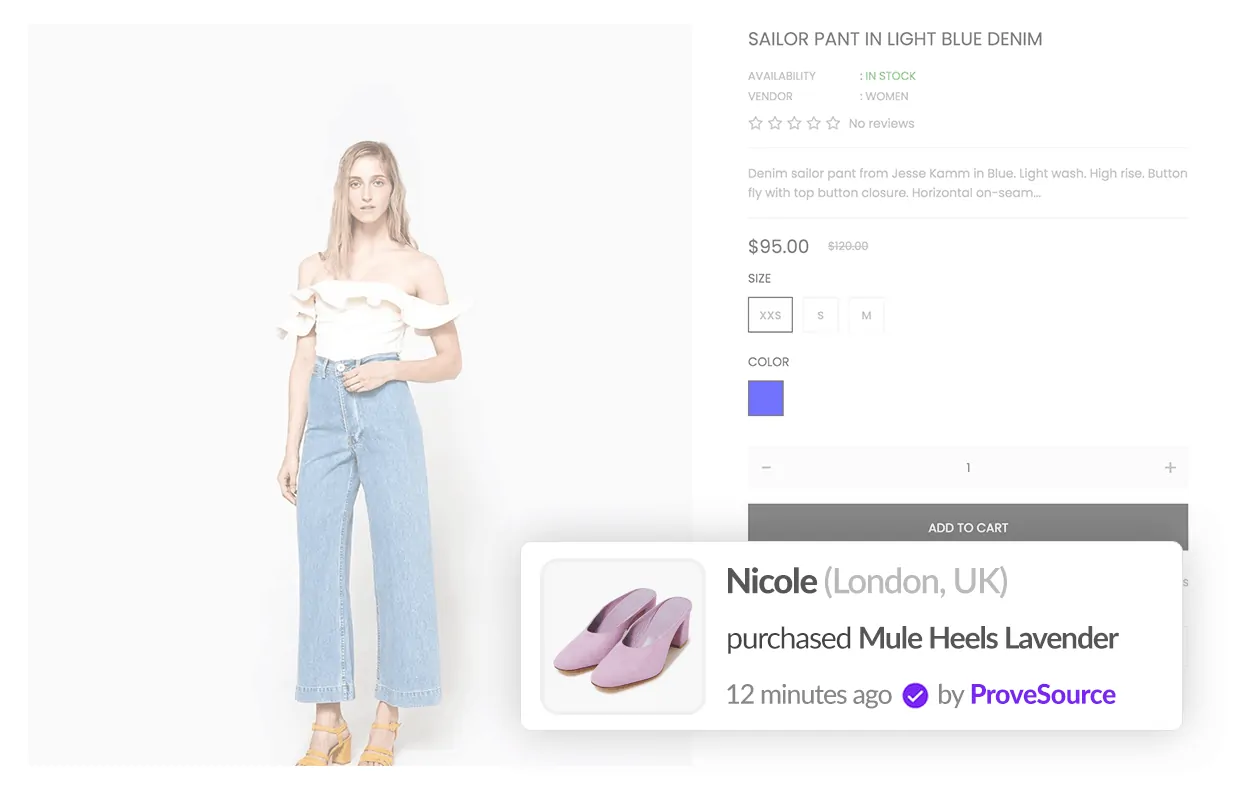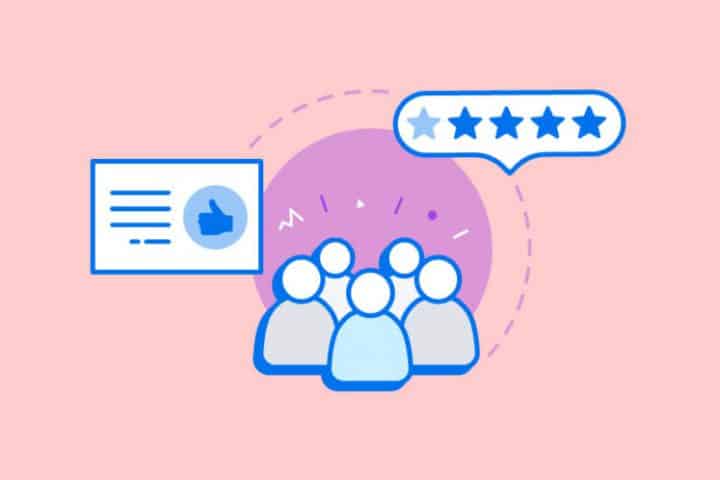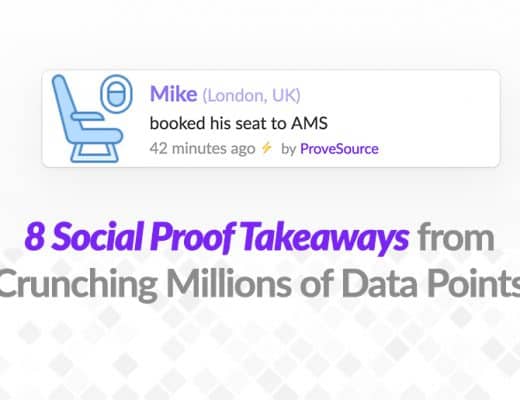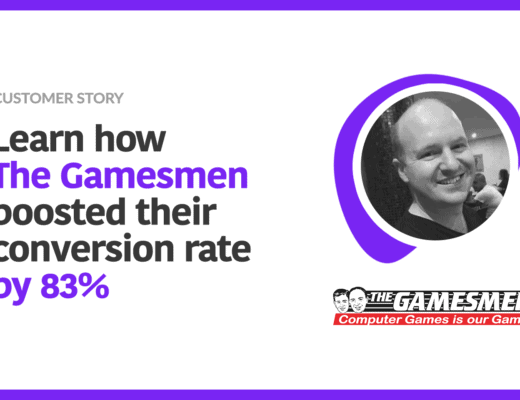Ever since prominent author and psychologist Robert Cialdini coined the term social proof, it has become a buzzword in the world of digital marketing. Almost every marketer is using social proof to influence customer decisions throughout the buyer’s journey.
When a potential customer feels unsure about your brand’s product or service, you can use social proof such as credible success stories to bring confidence to their purchase decision.
It is common for most B2B clients to invest in brands that have received endorsements from previous customers, industry experts, credible publications, and other reputable sources. For this reason, social proof is a powerful addition to every brand’s marketing arsenal.
Here’s a peek into six easy ways that B2B brands can leverage the power of social proof to increase website traffic, generate more leads, and boost conversions.
1. Showcase client reviews and testimonials
A B2B marketing study shows that 94 percent of B2B clients research a product or service at some point in their customer journey. In most cases, this happens even before they reach out to the brand’s sales representatives. During the process, they read dozens of reviews and testimonials from previous customers that help them make a decision.
B2B brands should therefore use customer reviews and testimonials to provide a detailed picture of why the target audience should choose their products and services. When it comes to reviews, ask customers to give your brand a user rating, followed by a summarized evaluation of their experience.
As for testimonials, ask your existing customers to share their experience with your brand. Strive to make them more credible by adding the client’s picture and using different forms of content, especially short videos. This way, more people can trust your testimonials, much like a personal recommendation.
Upon collecting the reviews, share them on your brand’s social profiles as well as your website. You can also add value to promotional emails by incorporating client reviews and testimonials in the body copy. Other places you can use customer reviews and testimonials include landing pages, PPC campaigns, newsletters, and blog
2. Publish case studies
Case studies are among the most powerful forms of social proof that B2B brands can use to encourage potential customers to take action and buy their products or services. Unlike testimonials or simple reviews that state “it was great working with company X,” case studies dive deep into the client’s experience.
A well-crafted case study should be a heroic story that demonstrates how your brand’s services helped a troubled client overcome major obstacles in their business. It should serve as a detailed success story about your client’s experience and how you helped solve their pain points. By showing prospective customers that your brand is more than capable of solving their problems, there’s a decent chance that your conversions will increase substantially. Most B2B clients will willingly put in their resources on a product or service that they know is worth the investment.
Here is an example of how Soasta uses case studies to tell their success stories. Notice how the case studies are beautifully presented in an easy to navigate manner.
Other than written case studies, you can use videos to make the content more engaging and enhance user experience.
3. Engage B2B influencers
Most clients in the B2B world rely on industry experts to guide their purchase decisions. When you share specific content through reputable names in your industry, prospective customers are more likely to trust your brand. Additionally, they will be more interested in your content, which makes it easier to increase conversions.
The good thing is that finding B2B influencers for brand endorsement is not a challenging task. With tools like Buzzsumo, you can easily find highly influential people in your industry and ask them for endorsement.
Another form of B2B influencing is letting industry analysts review your brand’s offerings and approve them publicly. Getting such endorsements from B2B influencers, whether paid or unpaid, will have a huge impact on the success of your marketing campaigns.
4. Encourage user-generated content
User-generated content refers to any form of content that is created by a brand’s clients and made available to the public. A marketing study shows that most people have 50 percent more trust on user-generated content as compared to traditional marketing. For this reason, every brand should leverage user-generated content to build credibility and inspire prospective clients.
B2B brands can ramp up their marketing efforts by encouraging existing customers to share their experiences in several ways. This includes blog posts, discussions, reviews, photos, or videos that feature your brand’s products or services. Additionally, you can create customer communities or forums like those of Adobe.
Setting up such a community allows customers to get the most out of your products. It also shows prospects that your customers are committed to your product.
5. Showcase accreditations, certificates, and other brand awards
Social proof must not always come from customers or industry experts. Awards and recognitions are another authoritative social proof that reassures prospective clients that a brand is good in what it does. If your brand has received leading awards or notable certifications in your industry, you can capitalize on this great opportunity.
If you showcase accreditations, awards, and recognition from trustworthy entities in your industry, your brand will appear more credible and trustworthy. Prospects are impressed by expert endorsements and certifications since they are awarded based on competence, merit, and experience.
Here is a good example:
6. Highlight press mentions
If your brand gets featured in a press publication, including articles or opinion pieces written by journalists voluntarily, always share it with your audience. A positive media report about your brand is a great way to enhance awareness and position your brand as a thought leader.
A good example is 2U, an education SaaS company that highlights press mentions on its website to increase its reputation in the eyes of customers.
Numbers have a great psychological power that B2B brands should leverage. Most prospects love brands with a high number of followers or subscribers.
If prospects realize that thousands of people are using your product, they are more likely to follow suit. It is therefore a good marketing practice to showcase your brand’s social media follower count or the number of product users. This serves as a credibility indicator.
Here is an example that tactfully persuades the target audience to follow this brand on social media.
Alternatively, you can celebrate followers or user-related milestones as a form of social proof to potential customers.
ProveSource is a powerful tool that showcases your recent orders, positive reviews, number of visitors and much more.


By adding a small piece of code to your website (or installing ProveSource in your Shopify, Wix, WooCommerce store) you can start showing up small notifications that can give your visitors the confidence they need to make a purchase or sign up for your offer.
Conclusion
When using social proof to enhance marketing efforts, focus on content that makes the target audience envision themselves using your brand’s products or services. All the above tips have such a unique psychological pull that opens a whole range of possibilities for your brand. Use them to enhance your brand’s credibility and drive more revenue.







